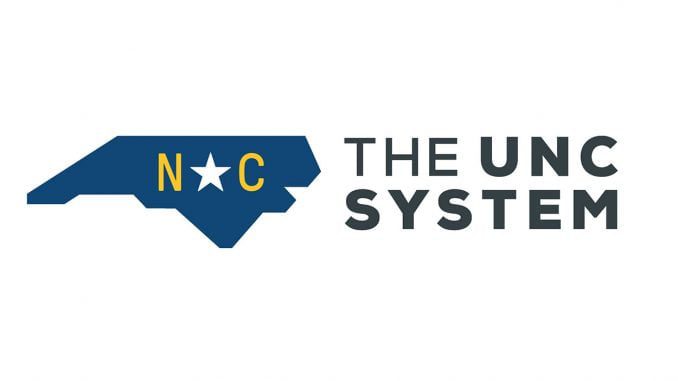
RALEIGH — A new report from the James G. Martin Center details the threat of Critical Social Justice to academic freedom in the UNC System.
“Academics and administrators are no longer merely pushing progressive politics but transforming universities into institutions dedicated to political activism and indoctrinating students into a hateful ideology. We call this ideological bent Critical Social Justice,” the report reads.
The report says Critical Social Justice (CSJ) can encompass topics such as Critical Race Theory, Critical Theory, Multiculturalism, and Identity Politics and that the UNC System promotes CSJ policies “under the seemingly innocuous rubric of Diversity, Equity, and Inclusion (DEI).”
The James G. Martin Center’s Director of Outreach Jenna Robinson tells North State Journal the report tries to catalog as systematically as possible all of the ways that critical social justice is being implemented throughout the UNC system.
“I think it’s important for people to understand when they hear DEI, that is critical theory being implemented,” Robinson said. “It sounds nice. We all like diversity and we like to include people. We don’t like to exclude people. We like people to be treated as equals, but that’s not what it means.”
Robinson added that she thinks people are realizing that DEI is actually the “insidious implementation of critical theory.”
Highlights of the report include:
- Total DEI administrative salaries across the system exceed $12 million.
- Both UNC-Chapel Hill and NC State each have 11 DEI administrators making more than
$100,000, with more than 30 DEI employees total at each school. Salaries at each university
total more than $3.25 million. - UNC System medical schools have extensive DEI administrative functions, including the
UNC School of Medicine’s nine administrators dedicated to DEI and the Brody School of
Medicine at East Carolina’s five DEI administrators (three of whom earn more than $100,000). - All 16 schools have DEI aspirations laid out in their strategic plans.
- At least seven schools require implicit bias training for all job search committees.
- Curricula dedicated to DEI are expanding not only through increased general education
requirements but also through “Living-Learning Communities” that promote social activism. - The Racial Equity Task Force is pressuring schools to conform to these mandates.
Robinson tells North State Journal that the UNC system is already in the process of creating an all funds budget, which will help to drill down and find DEI spending beyond just salaries.
“I think that in the future, we may be able to get a better handle on the spending,” said Robinson. “And if it’s not available in that all funds budget, then I do think there are opportunities for the legislature to look into it.”
Beyond the salaries for DEI staff within UNC system schools, Robinson noted some undergraduates are often required to take a “diversity” credit as part of their coursework.
“It’s classes in the grievance studies areas, “Robinson said of the undergraduate requirements. “You can’t simply take a class from a culture other than your own. You can’t take a class on, you know, a time period other than your own, you specifically have to take a class in kind of diversity studies in the United States. And all of them are from the same perspective. There is no viewpoint diversity in diversity studies.”
Robinson later said that the money flowing into DEI departments really means that students, parents and taxpayers are all paying to indoctrinate students and that is something everyone needs to be aware of.
The report includes a handful of policy solutions, which Robinson calls “a good mix” in preserving academic freedom.
“They address the kind of the non-academic parts of the University where this is really being very critical, social justice is really being pushed,” said Robinson.
Recommendations for reforms that can be implemented by UNC universities and the N.C. General Assembly include the General Assembly cutting UNC System budget amounts for spending on DEI, as well as discontinuing public funding for “identity-based Centers and Institutes.”
The report’s policy suggestions say all DEI training should be optional and in order to promote transparency, all faculty and administrators should have to post their CV’s, curricula, and syllabi online.
Additionally, hiring practices throughout the UNC system should be revamped and the legislature should “ban political litmus tests in hiring.” An example given is the requirement of offering “diversity statements” for a job offers or promotions.
“The legislature should end racial preferences in hiring and university admissions,” reads a related policy suggestion. That suggestion touches on the recently rekindled UNC Chapel Hill admissions discrimination lawsuit which the U.S. Supreme Court indicated on Jan. 24 it will be taking up this year.
Over the course of the last year, a rise in DEI and related bias and discrimination concerns have arisen in the UNC System.
In early November of 2021, Rep. Jon Hardister (R-Guilford) sent a letter to UNC Chapel Hill and UNC System officials over “equity, diversity and inclusion” training that members of the school’s Greek System were allegedly forced to attend. Hardister noted in his inquiry the training involved “white privilege” and how “whiteness” pervades society.
Chancellor Kevin Guskiewicz responded to Hardister, stating the Oct. 18 event was “sponsored” by the office of UNC-CH Fraternity and Sorority Life (FSL). Guskiewicz wrote that the session “focused on intellectual wellness” and confirmed the guest speaker was Christina Parle and said she was paid “$4,000” using FSL member fees.
In 2021, North State Journal reported on diversity training at N.C. State University that included courses such as “Intersectionality,” microaggressions and “whitesplaining.” The courses are required for staff and faculty but were made optional for undergraduates following media reporting on the issue.
Additionally, University of North Carolina at Wilmington Board of Trustees member Woody White resigned his position last September, citing issues with DEI creating an atmosphere of disparate treatment of conservatives on campus.
White’s letter said that UNCW “places high value on diversity, equity and inclusion” but there is “not a peep” about supporting “diversity of thought.” He also wrote that UNCW “punishes conservative voices by looking the other way,” and the school knows about student self-censorship but does “nothing about it.”



